The Hamiltons
William D. Hamilton was born in November 1854 on Penn Avenue in what is now Downtown Pittsburgh. He was the first of at least six children of William and Mary Hamilton, both Irish immigrants. The elder William Hamilton was employed as a moulder and machinist during the 1850’s and in the first few years of the 1860s. The Hamilton family moved to East Carson Street on the South Side during the 1850’s, and also lived in the West End while William D. Hamilton was a small child.
The Hamilton family’s financial position appears to have solidified by 1861, when William Hamilton purchased two adjoining undeveloped lots on Central Street (later Lincoln Avenue; now North Lincoln Avenue) in what is now Allegheny West. By 1865, Hamilton commissioned construction of two houses on the lots: 15 Lincoln Avenue (later 936 North Lincoln Avenue; on the present site of the Rooney garage addition at 940 North Lincoln Avenue) and 17 Lincoln Avenue (demolished in the 1890s to make room for an addition to the Thaw mansion at 930 North Lincoln Avenue). William Hamilton and his family began living at 17 Lincoln Avenue, and Hamilton’s widowed mother and other family members lived at 15 Lincoln Avenue.
In 1864, William Hamilton began manufacturing coffins in premises he rented at the rear of 31 Fifth Avenue in Downtown Pittsburgh. By the following year, Hamilton founded the Excelsior Coffin Manufacturing Company, located at the same address. The firm established a factory at 380-382 Penn Avenue, Downtown, and became known as Hamilton, Algeo, Arnold &Company by 1868. William Hamilton’s partners were R.K. Algeo of 39 Robinson Street (now General Robinson Street) in Allegheny City and James T. Arnold of 34 Walnut Street in Temperanceville (now the West End).
Records of the 1870 census, the last census to provide information on assets of persons enumerated, reported that the elder William Hamilton owned real estate valued at $35,000 and had a personal estate of $20,000. In 1870, a typical newer brick house of about nine rooms in Hamilton’s neighborhood was worth about $10,000.
William Hamilton’s firm moved its operations to the foot of Mulberry Street in Manchester, along the Ohio River, and changed its name to Hamilton, Lemmon, Arnold & Company during the 1870s. Hamilton’s partners were Brice Lemmon of 79 Page Street (between Manhattan and Chateau Streets; demolished), James T. Arnold of 121 Sheffield Street (later 1227 Sheffield Street; demolished), J.W. Carnahan of Denniston Avenue in Shadyside, John H. Mower of39 Allegheny Avenue (near Reedsdale Street; demolished) and Adam Ammon of 123 Sheffield Street in Manchester (later 1229 Sheffield Street; demolished).
William D. Hamilton, 25, and Caroline Penney Haney, 21, were married in 1880. Caroline Penney Haney Hamilton, born in McKeesport in August 1859, was a daughter of Lewis and Eliza Penney Haney, both born in Pennsylvania. She later served as regent of the Pittsburgh chapter of the Daughters of the American Revolution.
William D. and Caroline P. Hamilton had no children.
Between the late 1870s and mid-1880s, William D. Hamilton worked for Hamilton, Lemmon, Arnold & Company as a varnisher, clerk and manager. Hamilton was not listed in Pittsburgh city directories published in the late 1880s and early 1890s. It is likely that during this time he worked in New York for Chappel, Chase & Maxwell Co., named in his obituary as a firm for which he worked as a young man. The Hamiltons returned to Pittsburgh in about 1891, when William D. Hamilton became a partner in Hamilton, Lemmon, Arnold & Company.
In the early 1890’s, the Hamiltons began living at 218 Allegheny Avenue (on the eastern side of Allegheny Avenue near Abdell Street; demolished). The couple remained at 218 Allegheny Avenue until 1895, when they moved into their newly constructed home at 940 West North Avenue (then 21 North Avenue).
Hamilton, Lemmon, Arnold & Company was reorganized as the National Casket Company in about 1896. Although available records do not provide information on the reorganization, the name of the new firm suggests it may have been a consolidation of a number of firms in various cities. It should be noted that at the turn of the century, Pittsburgh became the headquarters of several large manufacturing firms that were formed by national or regional consolidations in the steel, glass, aluminum and brewing industries.
Navigation
By Owner
- The Alexanders
- The Bells
- The Biancos
- The Butzes
- The Childlses
- Josephine Dale
- The Darlingtons (Harry)
- The Darlingtons (Henry)
- The Diffenbachers
- The Elliotts
- The Fraziers
- The Gerlachs
- The Gibsons
- The Grahams
- The Grays
- The Hamiltons
- The Hoffstots
- The Holmeses (Charles)
- The Holmeses (Letitia)
- The Joneses
- The Kaufmanns
- The Klees
- Max Klein
- The Knoxes
- The Lyonses
- The McKelvys
- The Milligans
- The Nevins
- The Prices
- The Rhodeses
- The Rosenbachs
- The Scullys
- The Siebenecks
- The Singers
- The Sweitzers
- The Teufels
- The Torrances
- The Trauermans
- The Watsons
- The Weihls
- The Willocks
